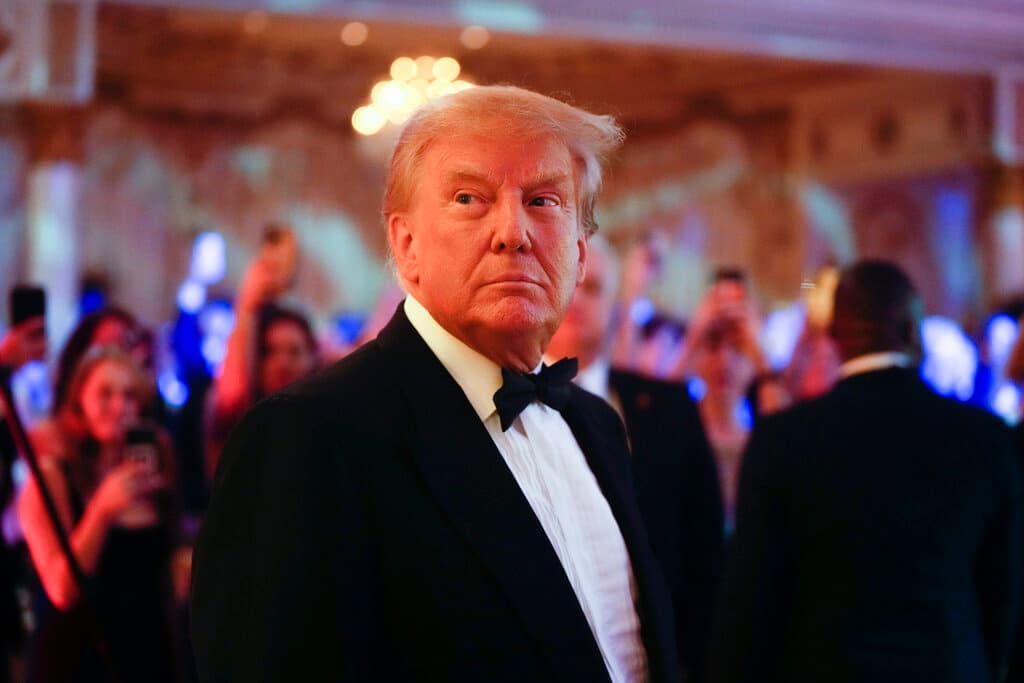Trump’s Valet Is Denied a Dismissal by Judge Cannon, Suggesting No Quick Victory for the 45th President
Trump’s claim to immunity, though, could be gaining steam in South Florida.

President Trump’s valet, Waltine Nauta, will have to go to trial on charges following the rejection by Judge Aileen Cannon of his motion for dismissal of the charges handed up by Special Counsel Jack Smith — though a reckoning looms at the Supreme Court, which is weighing immunity for the 45th president.
Mr. Nauta is charged, along with Trump and another Mar-a-Lago employee, Carlos De Oliveira, with crimes of obstruction in respect of secret documents. Trump is also accused by the special counsel of dozens of violations of the Espionage Act.
The valet claims that he was “selectively and vindictively prosecuted,” which can be grounds for charges to be dismissed or for a grant of additional discovery so the defendant has the opportunity to further substantiate his claims. Judge Cannon, though, cut that possibility off at the pass.
The denial of Mr. Nauta’s motion, Judge Cannon took pains to explain, “shall not be construed as commenting on the merits of Defendant Trump’s Motion to Dismiss the Indictment Based on Selective and Vindictive Prosecution.” She has not yet ruled on that motion, nor on a range of other motions to dismiss.
While prosecutors are granted wide discretion in the choice to bring charges, the Supreme Court has held that their decision to do so is owed a strong “presumption of regularity.” For a defendant to overcome that presumption, the high court explains, they must meet a “demanding burden,” and furnish “clear and convincing evidence” that the decision to prosecute was irregular.
For a defendant to earn a dismissal on these grounds, he is required to show that similarly situated individuals were not prosecuted and that discriminatory purposes motivated the prosecution. Judge Cannon finds that Mr. Nauta fails on both counts. The valet argued that his prosecution was motivated by his refusal to cooperate with the government and testify against his boss.
Trump’s latest motion to dismiss, though, could prove more persuasive. Judge Cannon, in a separate order on Saturday, delayed some deadlines in the case in the wake of the Supreme Court’s ruling that official acts of the president are presumptively immune. The 45th president has already argued to Judge Cannon that the decision sounds in this case, not only those arising from January 6.
Judge Cannon has ordered further briefing on that question. Mr. Smith is expected to argue that because the charges post-date Trump’s time at the White House, they are outside even the Supreme Court’s generous grant of immunity. Trump, though, has not put all of his efforts to dismiss in the immunity basket.
Trump also argues that the case should be dropped because Mr. Smith was unconstitutionally named to his position in violations of the Appointments Clause. That contention received a boost at the high court when Justice Clarence Thomas signaled that he could be open to such a challenge. He attributes his concurrence in Trump v. United States to an impulse “to highlight another way in which this prosecution may violate our constitutional structure.”
That second way stems, the justice writes, from the conviction that “a private citizen cannot criminally prosecute anyone, let alone a former President.” Mr. Smith was never nominated by a president or confirmed by the Senate, and was prosecuting war crimes when Attorney General Garland tapped him for the job. Judge Cannon has already heard oral arguments challenging his appointment.
Trump, with his immunity victory in hand, has not only asked Judge Cannon to dismiss the charges — he has also petitioned for the case to be frozen while she considers the question. The 45th president’s legal team has secured a win on those grounds at Manhattan. Judge Merchan delayed for more than two months a sentencing decision in order to consider what the immunity ruling means for Trump’s 34 convictions in the hush money case.

